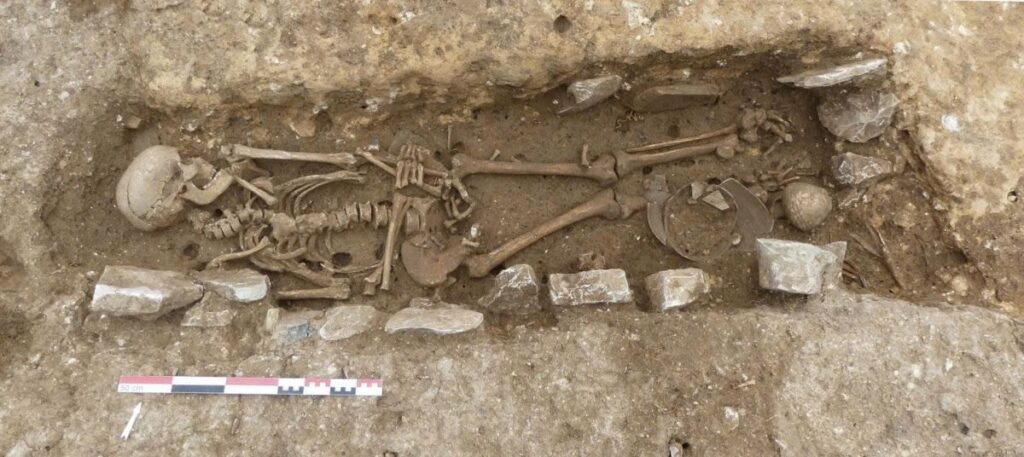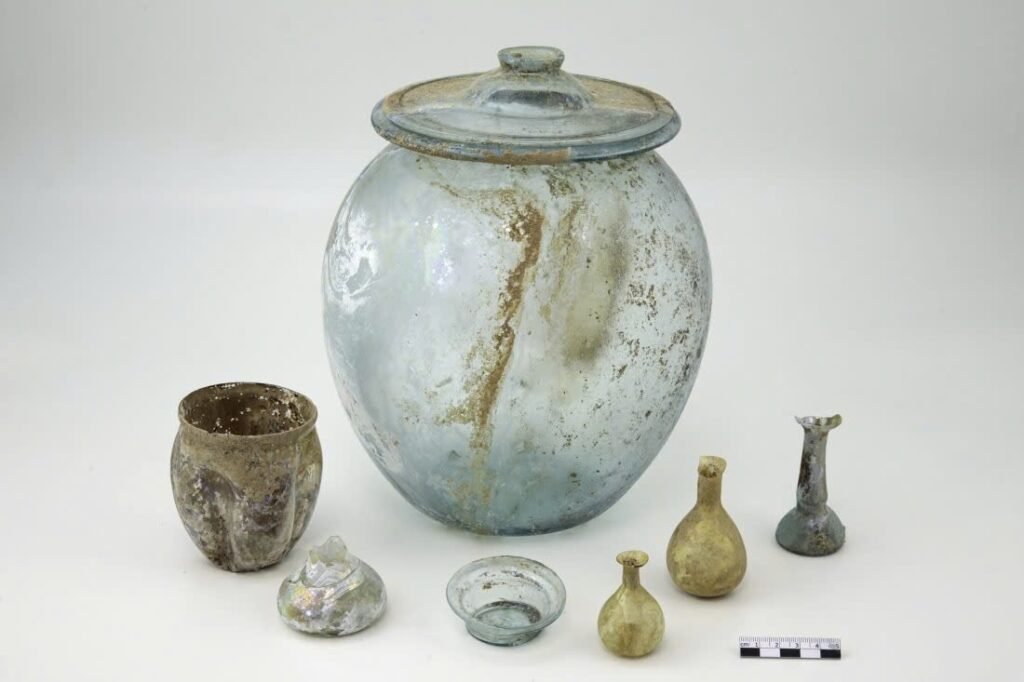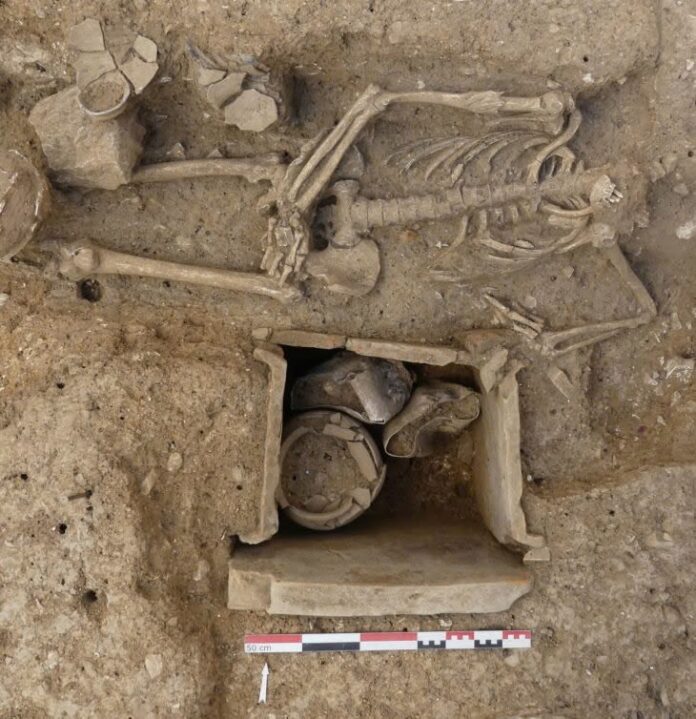Ancient Burial Ground Reveals Diverse Interment Methods

In the heart of southern France, archaeologists from Inrap have made a remarkable discovery at Nîmes, unearthing a cemetery dating back to the 1st and 2nd centuries AD. This excavation site, located at 1bis rue de l’Abattoir, has yielded a fascinating array of burial types, offering new insights into Roman funerary practices.
A Glimpse into the Past: Fifty Lives Uncovered

The excavation has revealed the remains of fifty individuals, each telling a unique story of life and death in ancient Nîmes. These burials showcase a variety of interment methods, including:
- Inhumation burials
- Cremation urns
- Funerary pyres
A Treasure Trove of Grave Goods

Accompanying these ancient remains, archaeologists have uncovered a wealth of well-preserved grave goods, primarily consisting of pottery. These artifacts provide valuable clues about the customs and beliefs of the Roman-era inhabitants of Nîmes.
Unraveling the Secrets of Nîmes’ Peri-Urban Areas
From Vineyards to Burial Grounds
The site’s history begins with agricultural use, evidenced by furrows for planting vines predating the 1st century AD. This agricultural phase gives way to the area’s transformation into a cemetery, offering a unique window into the evolution of land use in Roman towns’ outskirts.

A Diverse Community Laid to Rest
While most of the interred were adults, at least two child burials have been identified, painting a picture of a diverse community. The cemetery’s layout reveals distinct burial groups, with some areas showing evidence of wall enclosures around multiple graves.
Innovative Burial Techniques Unveiled
Wooden Coffins and Stone-Lined Graves

The excavation has revealed several innovative burial techniques, including:
- Wooden coffin inhumations (evidenced by remaining iron nails)
- Stone-lined graves
- A unique burial with the deceased positioned as if reclining at a final funerary banquet
Remarkable Cremation Burials

Some of the most extraordinary finds include:
- A large, well-preserved cinerary vase discovered in a masonry loculus
- A stone coffer containing an intact glass cinerary vase with its lid, accompanied by an array of grave goods including bronze mirrors and wooden styluses
These discoveries at Nîmes’ Early Imperial cemetery provide an unprecedented look into Roman funerary practices, offering archaeologists and historians new insights into the lives and deaths of ancient Gaul’s inhabitants.

